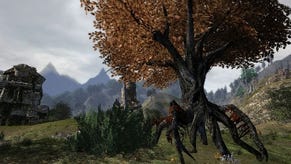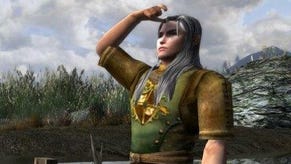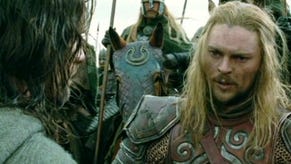The Lord of the Rings Online: Shadows of Angmar
Turbine's vision of Middle-Earth.
It's designed so everybody can have fun and get a benefit from doing it. So it doesn't matter who's in the party, as long as you all press the buttons at the right time you'll get something cool. But if you start figuring out how to work with people and understand the order to do things, then that's the biggest benefit. There's a pretty good set of combinations for most groups of classes, although there's some exceptions.
The Burglar's really the only one who can set off Conjunctions at will - or Fellowship Manoeuvres as we're now calling them. Everyone else has a chance of setting them off at different times depending on state, as we wanted to have some group roles that were defined. That said, we can always add new traits to augment a particular classes capabilities. In the future, for example, you can imagine being able to set off Fellowship Manoeuvres even though you're not a Burglar because you have a certain trait. There's a lot of flexibility there.
For now we're letting it play for a while to see how it goes, but we have the ability there. And for me, personally, that's one of the best things about the trait system. We created the classes to be what they are, but they're not locked in stone.
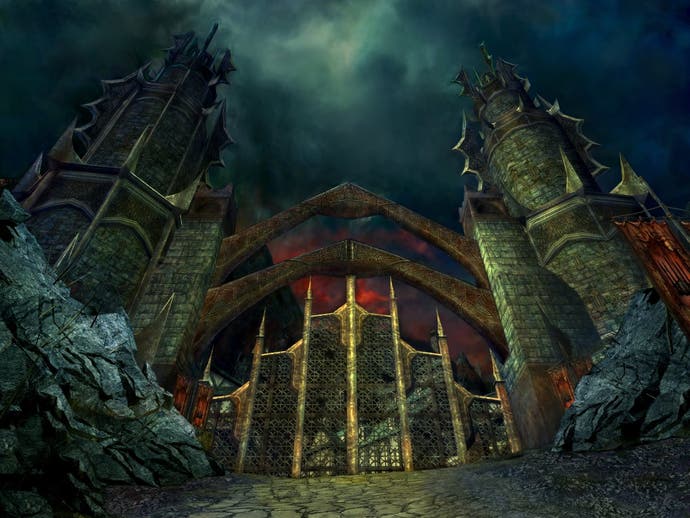
There's a lot of places we can go with it, I think, but we want to watch it and see where the strengths and weaknesses are. We spent a lot of time over the development period playing around with different sized groups and levels of Fellowship Manoeuvre complexity. We eventually settled on what we have now because it was the maximum amount that was fun to manage. When you start trying to do these coordinated attacks across 20 or 30 people it becomes impossible to manage.
But we'll see what players do. If they start going into raids and self-coordinate Fellowship Manoeuvres across four groups at the same time, which theoretically you could do, then you could easily see us putting some energy into enabling people to communicate with each other in that area.
Everything we've got in the game right now is a start. After four-and-a-half years of development it's day one [laughs].
I think it's both. We spent a lot of time in alpha getting ready to listen to player's suggestions in beta. Listen means a lot of things, like looking at the data and watching people behave then comparing that to what they say. This game is for the people playing it, and we need to know what's going to make them most likely to stay in the world. We're absolutely interested in what the players want to do.
We want it to progress, but we don't want to make it a totally different game. I think in the past we've seen the perils of both. In the olden days you launched a game and kept adding stuff to it, and that worked. Now it needs to grow, evolve, and change - but retain its identity. You need to strike a balance.
Oh absolutely, I think the industry in general has been. We've now permanently moved away from the concept that learning how to play is the gameplay itself. As a player you want to be challenged, but on a level that makes sense to you and feels fun. The whole point of Fellowship Manouevres, Traits, Monster Play, the way we handle advancement - and all that stuff is to say: where is the genre going? What are the things that can be more fun, can be better, and can support the kind of behaviour we're seeing?
Three, four, or five years ago, we would have said the larger the raid the better, period. There's certainly debate about this, but what we've learned says this isn't true, as you can only manage so many people. So it's responding to what we've learned, and the great thing about this business is that you've got a live focus-group there all the time.
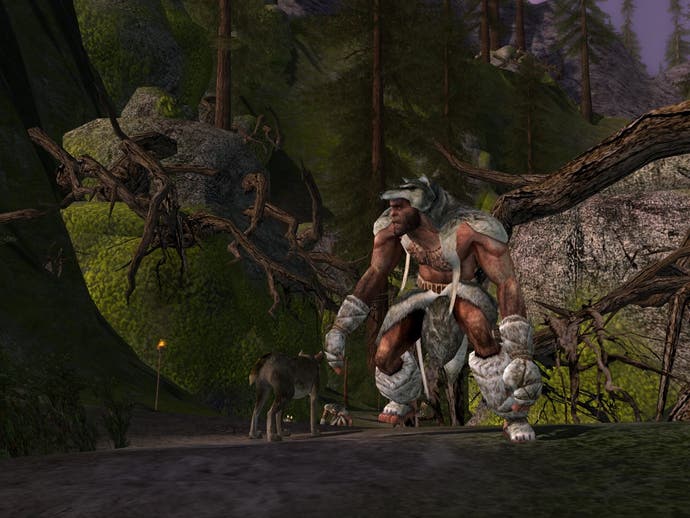
The "secondary market" is a huge topic of conversation across the industry, and we're watching it really closely. Our position is pretty straightforward right now. Our responsibility is to the subscribers of the game, to deliver to them the experience they expect. So we certainly do not support people farming or taking advantage of the system in that way. It's against our Terms of Service and we do try and enforce that.
But, we all know that something will happen in the next two to five years to business models in general, so we're paying attention to what's going on; watching what's going on with Sony Station whose servers support and manage this.
That's the endless philosophical discussion. If I can find a way for every type of person in my game to play the way they want to without adversely affecting anyone else, then that's win, win, win. And that's what we'll try to figure out.
Now you're trying to get me in trouble! [laughs]
There's always things, and we have a long list of them that we're excited about doing. But we really did launch the game with what we felt really needed to be in it, what we were excited about. There were things that we would have loved to put in, but I'd like to have those to add over time: there's only so many new things you can learn all at once, right?
But it's never enough for us. I never feel like we launched everything we wanted to launch. It's never good enough. [laughs]
Oh, that's hard to answer, because we don't really know what our potential is. Blizzard demonstrated this is a much bigger market than anybody ever thought it was, and we basically want to cement that, to show it's absolutely true. We want to show there are multiple products that can service a broader market, and that it wasn't just a strange accident that happened. And we're on the path to doing that.


